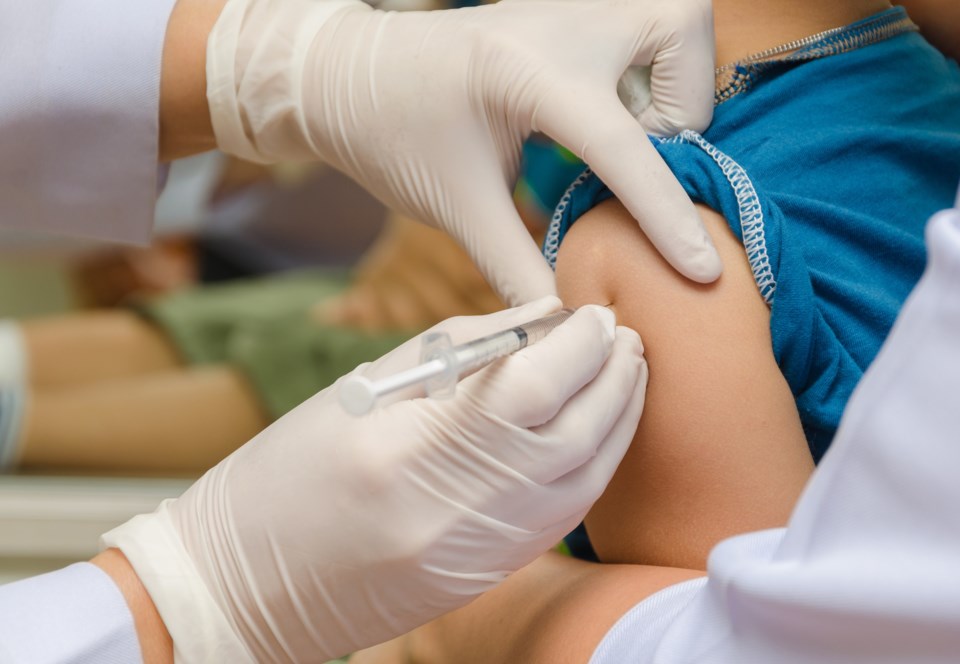Sault, Michigan’s War Memorial Hospital (WMH) has COVID-19 vaccine doses it is willing to share with at least some of its Sault, Ont. neighbours.
"We have 3,000 doses of Moderna and 1,500 doses of Pfizer currently in stock at War Memorial,” said David Jahn, War Memorial Hospital president and CEO, speaking to SooToday Thursday.
“We have probably three or four pharmacists who are Canadian citizens that come to work for us every day.”“They’re the ones that control the vaccine and order our vaccine, and they were very frustrated that they were able to get vaccinated, but their family members (in Sault, Ont.) weren’t, and so they said ‘it’s tough for us seeing all this vaccine in a freezer and then knowing our mothers and fathers and grandmothers and grandfathers haven’t been able to get vaccinated yet,’” Jahn said.
“(They asked WMH) ‘is there any way that we could allow them to come across to get their vaccination and then go back?’”
“I would think we have 50 plus (Canadian citizens working for WMH),” Jahn said.
That number includes nurses, pharmacists, cardiopulmonary department staff and human resources staff.
They are considered essential employees at WMH, and are therefore allowed to cross the Canada-U.S. border.
“We have vaccine that’s available and we want to provide it to at least the family members (of Canadian WMH staff), and maybe more Canadian citizens who might want it,” Jahn said.
“We are trying to work with Algoma Public Health to see how we can get some vaccines into at least our family members arms.”
“We would also entertain the idea of (giving the vaccine to) Sault Area Hospital workers who are on the front line who haven’t had their second vaccine yet and want it. We could provide it to them, if it’s the same brand,” Jahn said.
“There were eight to 12 (medical staff) that worked in both places (War Memorial Hospital and Sault Area Hospital), and I think four of them stayed to work with us and I think eight of them decided to stay and work at Sault Area Hospital (when required by Canadian authorities to make a choice at the start of the pandemic).”.
“(Canadian nurses) that still want to come and work some shifts for us are fully vaccinated, why can’t they work at both places?” Jahn said.
“I see their frustration.”
“We are aware that people such as cross-border workers, who are exempt from the federal travel and quarantine restrictions, have been able to be offered immunization in Michigan. This includes health care workers who work at War Memorial Hospital, and who live in Sault Canada,” wrote Nicole Lindahl, Algoma Public Health (APH) COVID-19 response supervisor in an email to SooToday.
“It is the federal government that has jurisdiction over travel and quarantine restrictions. At this time, there are no special quarantine exemptions for Canadians who wish to cross the border just to get immunized in the U.S.”
“We continue to dialogue with partners to explore ways to improve access to vaccine (in APH’s area of jurisdiction),” Lindahl stated.
Jahn said, of those 65 years of age and older in the Sault, Mich. area, 76 per cent have had one dose of a COVID-19 vaccine, 72 per cent of them fully vaccinated.
“That’s great for the older people,” Jahn said, with Pfizer and Moderna vaccines available and the Sault, Mich. area now beginning to receive shipments of the Johnson & Johnson vaccine.
Jahn said across all ages in Chippewa County, 46.8 per cent of residents have had one dose of the vaccine, 42 per cent are fully vaccinated.
Jahn said WMH numbers show 116 patients were admitted as COVID-positive, along with “a few” employees off sick with COVID before the vaccines were rolled out.
33 people in Chippewa County have died from COVID-19 since the pandemic started, Jahn estimating “less than 10” of those died of COVID at War Memorial Hospital.
However, Jahn said “so far, the vaccine has done what it was supposed to do. It protects people from being hospitalized and it protects people from getting COVID, and we’ve only had one break through, where a person in the community was fully vaccinated and the virus broke through the vaccine but they had no symptoms.”
With Jahn’s confidence in the vaccines available, he asked “why shouldn’t we be trying to help our neighbours (in Sault, Ont.) if we have extra vaccine?”
Jahn said WMH has contacted the Michigan Department of Health and Human Services.
He said the department told him it prefers a ‘U.S. citizens vaccinated first policy’ but hasn’t forbidden the hospital from sharing it with Canadian neighbours.
“They’re not going to come and slap our wrist if we give some vaccines out to Canadian citizens, especially family members of our staff or Sault Area Hospital members...we want to protect as many people as we can.
